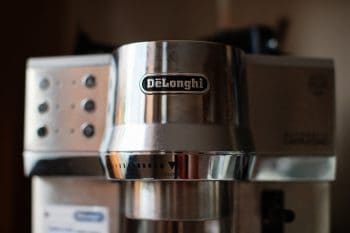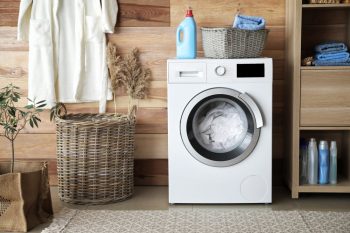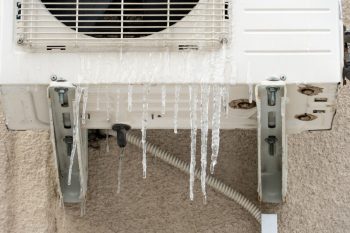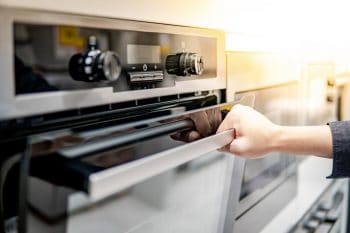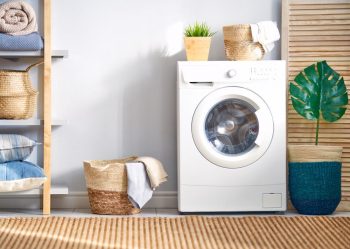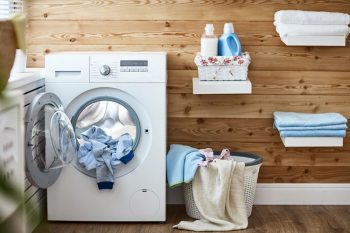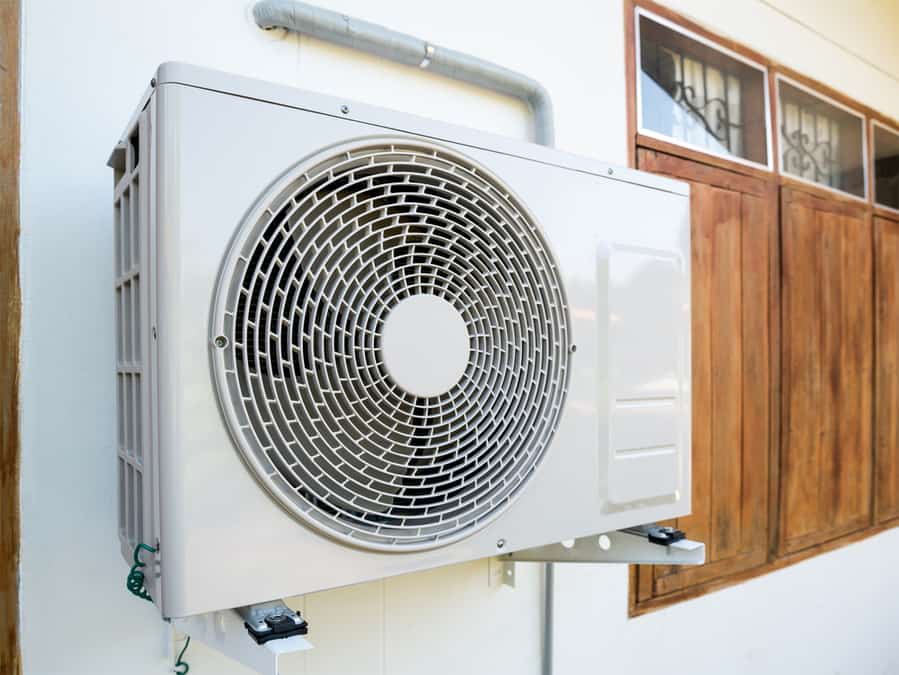
Summertime is a time for relaxation and fun, but if your air conditioner breaks down, it can quickly become a nightmare.
Unfortunately, AC failures are more common than you might think, and one of the most common culprits is a failing compressor.
The compressor is the heart of your AC system; if it fails, your home will quickly become uncomfortable and unbearable. But what causes the compressor to fail, and how can you avoid it?
This article will answer these questions and provide tips for maintaining your AC system.
Here are some key points to keep in mind:
- Regular maintenance can help prevent AC compressor failure and save you money in the long run.
- Pay attention to warning signs such as warm air, unusual noises, and tripped circuit breakers to catch compressor failure early.
- Don’t ignore refrigerant leaks, which can harm your health and the environment.
- Electrical issues such as power surges and faulty wiring can damage your compressor, so have your system inspected regularly.
- A failing compressor can increase your energy bills, so be sure to address any issues promptly.
- Lack of lubrication can cause compressor damage or complete system failure, so ensure your system is properly lubricated.
- Proper installation by a professional is crucial to prevent undue stress on your AC compressor.
Don’t let age catch you off guard; older compressors are more likely to fail, so consider replacing your system if it’s near its lifespan.
This article will explore the common signs of a failing AC compressor, so you can catch the problem early and avoid a complete system breakdown.
From warm air blowing from your vents to unusual noises coming from your AC unit, there are several signs to look out for.
Keep reading to learn more about what to watch for and how to prevent compressor failure to keep your home cool and comfortable all summer.
What Is an AC Compressor and How Does It Work?
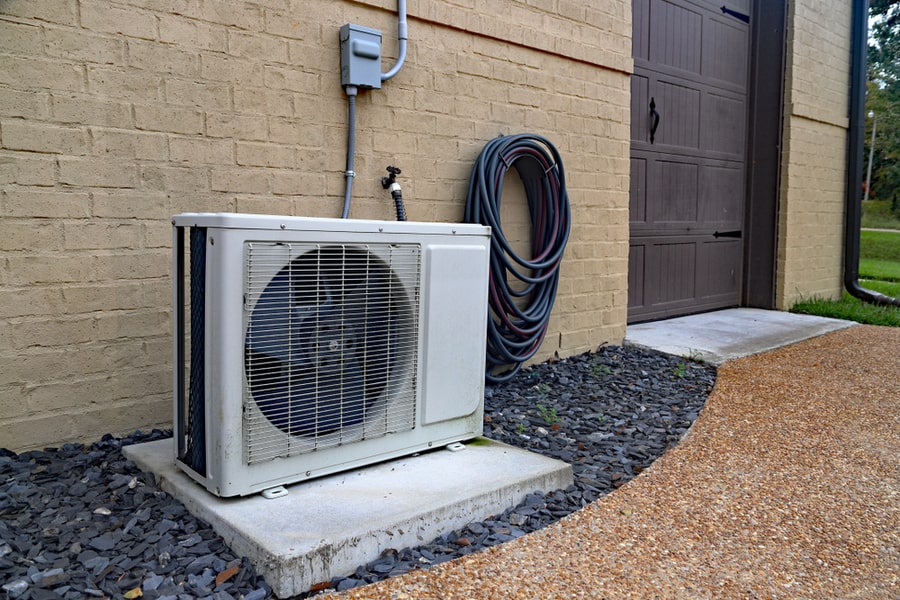
An AC compressor is a crucial component of your air conditioning system. It compresses and circulates refrigerant gas throughout the system, which cools the air inside your home.
The compressor works by drawing in low-pressure refrigerant gas and compressing it to a high pressure, which increases its temperature.
This hot, pressurized gas then travels through the condenser coil, releasing heat and becoming a high-pressure liquid.
From there, the liquid refrigerant passes through the expansion valve, where it expands back into a low-pressure gas and cools down significantly.
This cooled gas then travels through the evaporator coils, which absorb heat from the air inside your home, creating cool air distributed throughout your living space.
Without a functioning AC compressor, your air conditioning system cannot circulate refrigerant and cool your home effectively.
Signs of a Failing AC Compressor
When an AC compressor starts to fail, there are typically several warning signs that you may notice.
Here are some of the most common signs that your AC compressor may be failing:
1. Warm Air Coming From Your AC
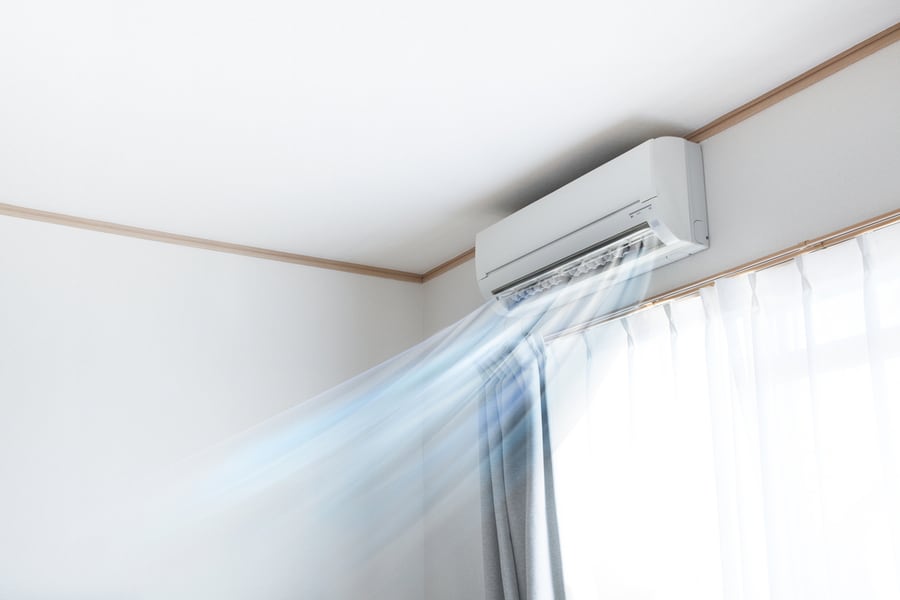
If you feel warm air blowing from your AC, it could be due to a failing AC compressor not circulating refrigerant properly.
This issue may be caused by a faulty compressor clutch or worn-out piston rings, which can prevent the compressor from compressing refrigerant gas effectively.
2. Loud or Unusual Noises
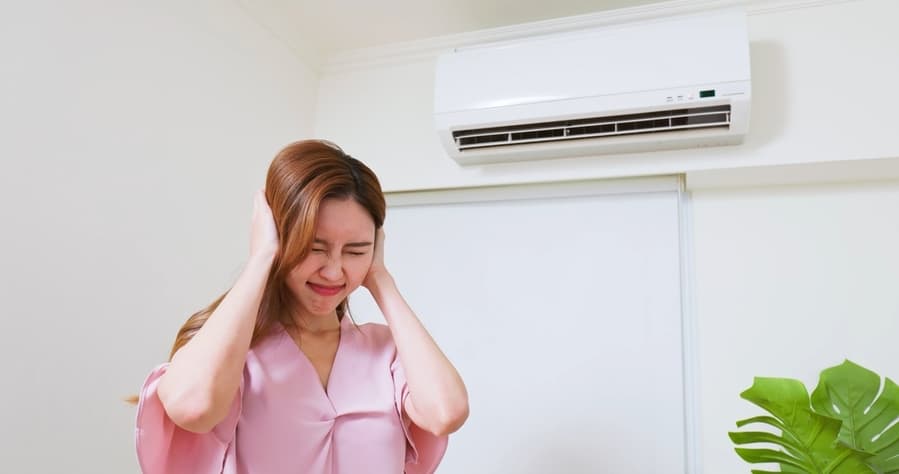
Unusual noises such as banging, clanging, or grinding sounds may indicate a problem with the compressor or other components in the AC system. For example, a failing compressor may produce a loud rattling noise when it starts or shut down.
3. Tripped Circuit Breaker
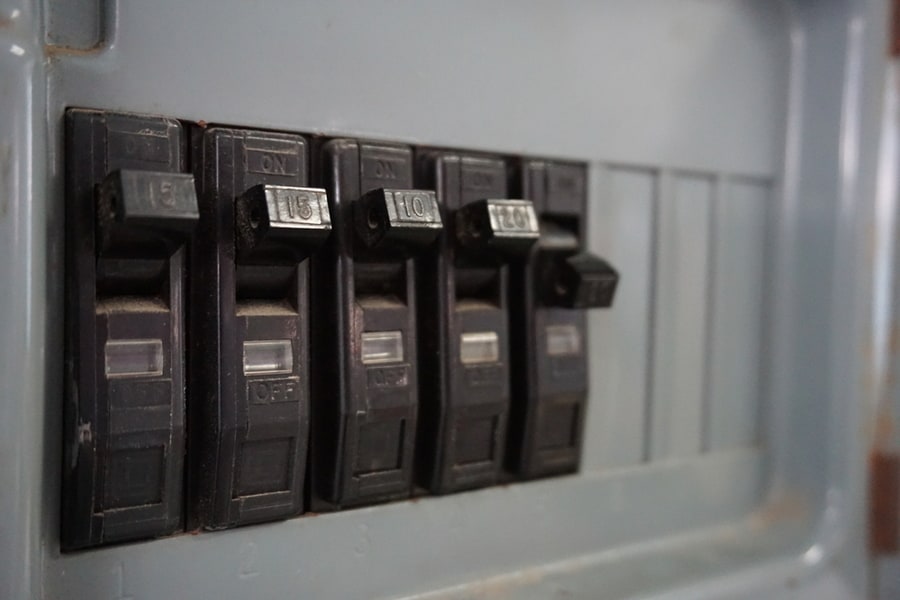
If your AC system keeps tripping the circuit breaker, it could be due to an electrical overload caused by a faulty compressor.
A compressor drawing too much power may trip the circuit breaker to prevent further damage to the system.
4. Refrigerant Leaks
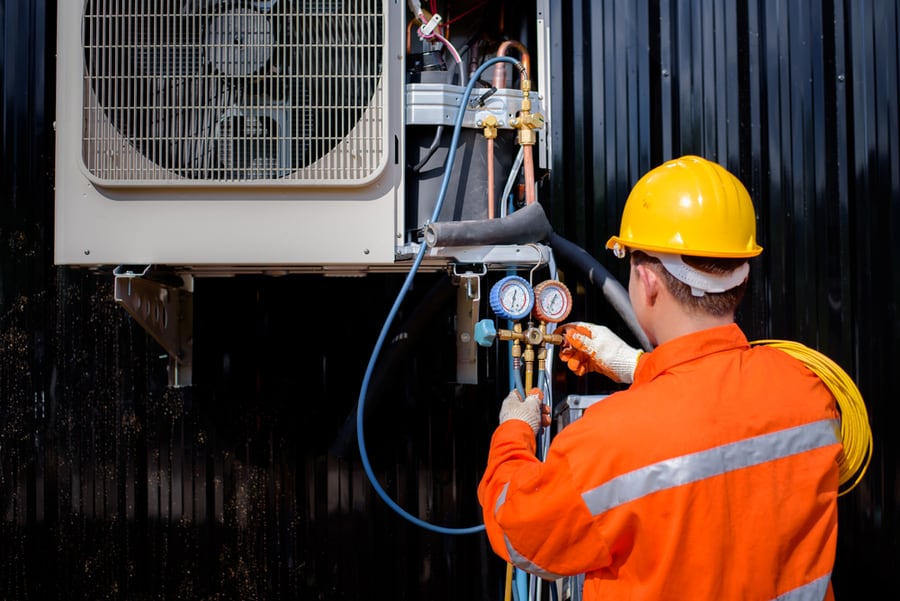
A failing compressor may cause refrigerant leaks, harming your health and environment.
Signs of a refrigerant leak may include a hissing sound coming from your AC system, a foul odor, or visible signs of refrigerant around the unit.
5. Increased Energy Bills
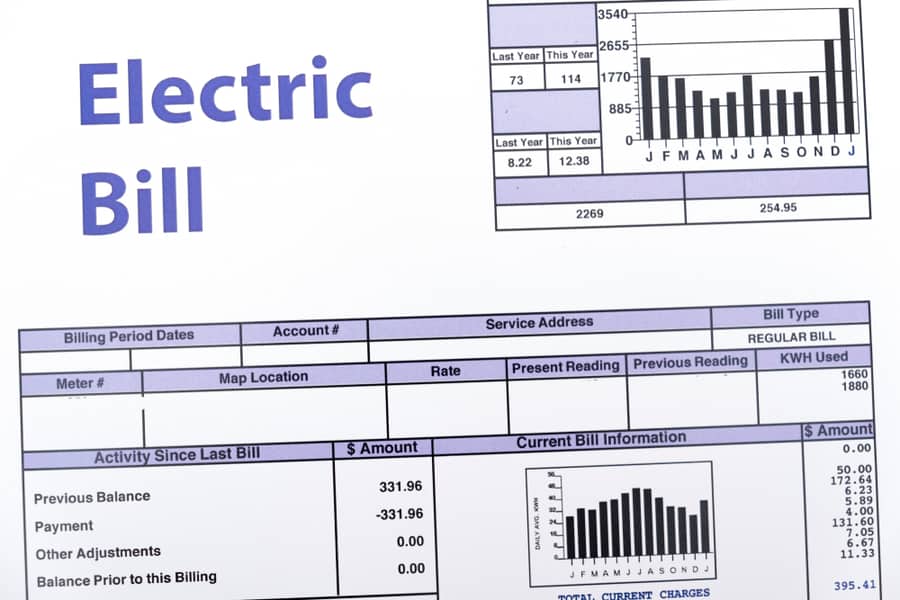
A failing compressor may cause your AC system to work harder and use more energy to maintain the desired temperature. This increased energy usage can result in higher energy bills, even if you haven’t changed your usage habits.
If you notice any of these signs, having your AC system inspected by a professional as soon as possible is important. Ignoring a failing compressor can lead to further damage to your system and potentially costly repairs.
Common Causes and Solutions of AC Compressor Failure
There are several causes of AC compressor failure, some of which are preventable with proper maintenance.
Here are some common causes of AC compressor failure:
1. Dirty Coils
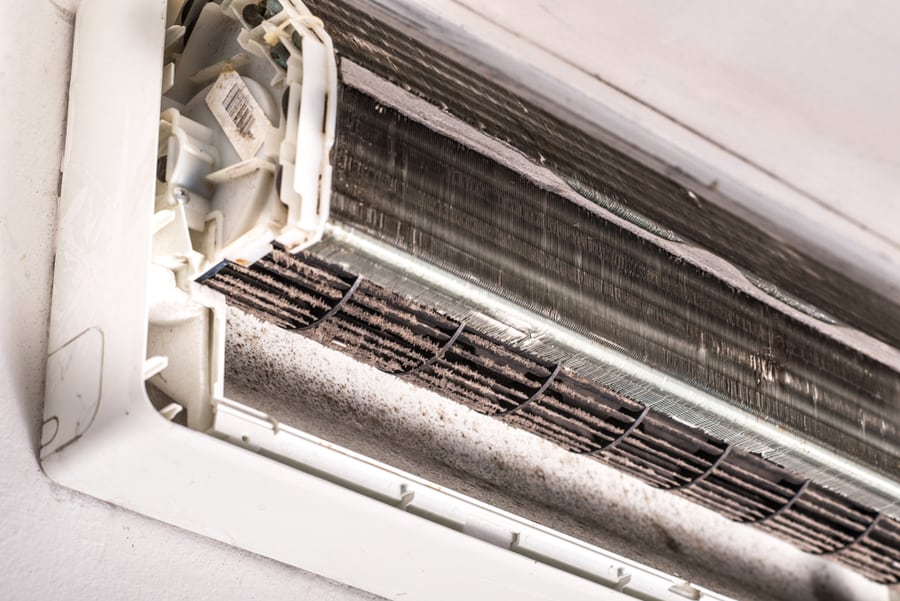
The evaporator and condenser coils in your AC system can become dirty over time, which can reduce their efficiency and cause the compressor to work harder to cool your home.
Dirt, dust, and debris can also accumulate on the coils and act as an insulator, which can cause the coils to overheat and the compressor to fail. Regular cleaning and maintenance of your coils can help prevent this issue.
In addition to regular coil cleaning, replacing air filters regularly is important. Dirty air filters can also cause the coils to become dirty quickly, reducing efficiency and potentially causing compressor failure.
Replacing air filters regularly can prevent dirt buildup on the coils, which helps prevent the AC compressor from failing.
2. Low Refrigerant Levels
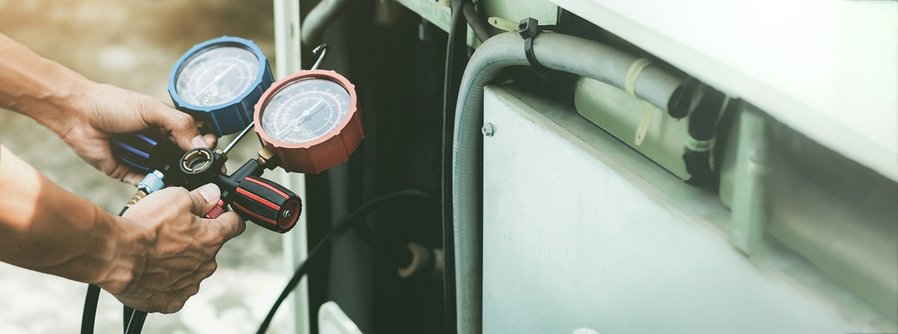
Refrigerant is the substance that helps cool the air in your AC system. When refrigerant levels are low, the compressor has to work harder to circulate through the AC system.
This puts additional strain on the compressor, causing it to wear out more quickly and increasing the likelihood of compressor failure.
To prevent compressor failure due to low refrigerant levels, addressing any leaks in the AC system as soon as possible is important.
Regular maintenance and inspection can help detect leaks early on, allowing for prompt repairs and preventing further damage to the compressor.
Additionally, it’s important to ensure that your AC system is properly charged with refrigerant to avoid low levels and compressor failure.
3. Too Much Refrigerant
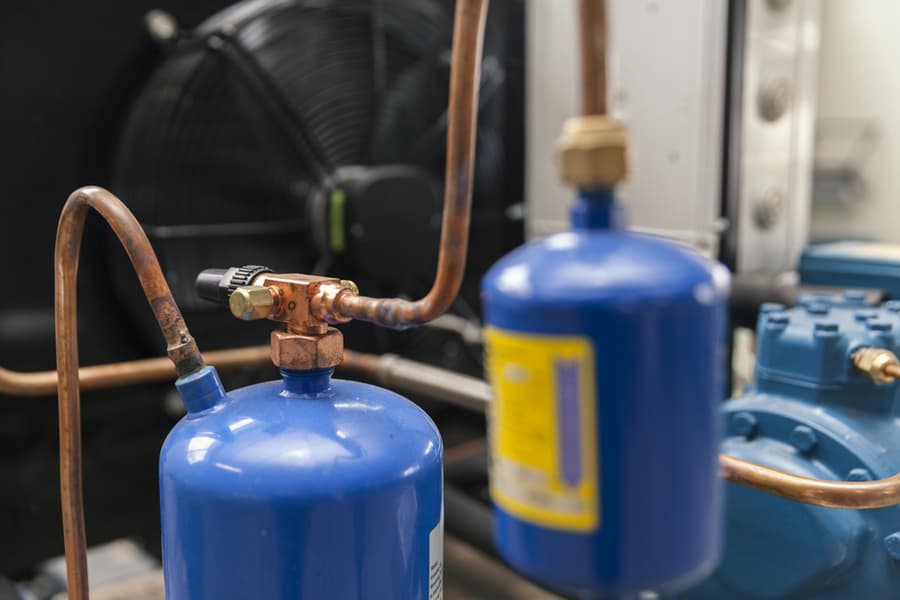
Too much refrigerant in your AC system can be as harmful as having too low. If there is too much refrigerant, the compressor can become damaged from overheating.
Excess refrigerant can cause the compressor to work harder than it’s designed to, putting additional strain on its components.
One common cause of overcharged refrigerant levels is improper installation or maintenance by unqualified technicians.
If you suspect that your AC system has too much refrigerant, it’s important to have a professional inspect the unit and fix the issue.
Running your AC with too much refrigerant can cause damage to the compressor and other components, resulting in costly repairs or the need for a full system replacement.
4. Lack of Lubrication
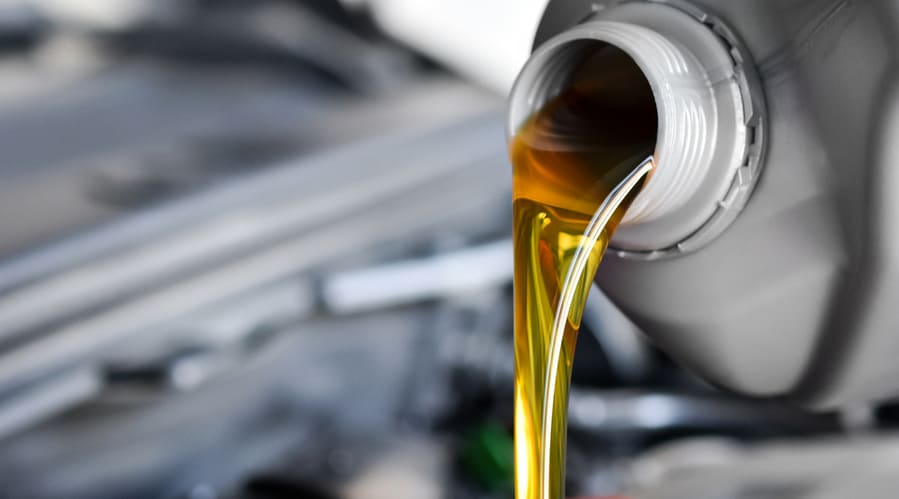
Lack of lubrication is a common cause of AC compressor failure. The compressor in your AC system needs oil to function properly, and if there is not enough lubrication, the compressor can become damaged or even seize up.
This can happen if there is a refrigerant leak, which can cause the oil to leak along with the refrigerant. It can also be caused by a malfunctioning oil pump or poor maintenance practices, such as neglecting to change the oil regularly.
Regular maintenance, including checking and changing the oil, ensures your AC compressor functions properly.
If you notice any signs of low oil levels or suspect that your compressor is not getting enough lubrication, it’s important to have a professional inspect and address the issue.
Running your AC system with low oil levels can cause serious damage to the compressor, resulting in expensive repairs or the need for a full system replacement.
5. Clogged or Damaged Suction Lines
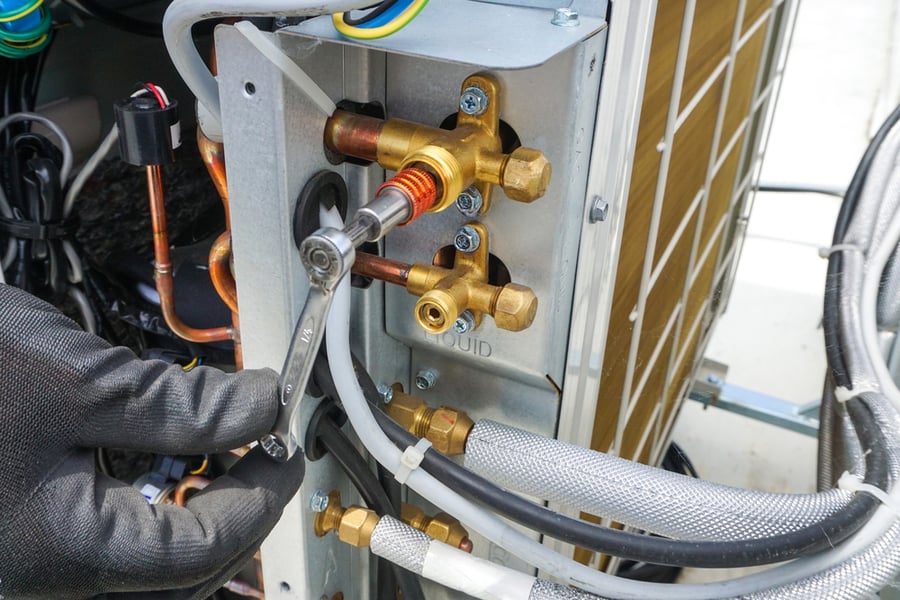
Suction lines carry refrigerant vapors from the evaporator coil to the compressor. If these lines become clogged or damaged, it can cause the compressor to work harder to pull in the refrigerant, leading to overheating and eventual failure.
Dirt, debris, and other contaminants can accumulate in the suction lines and, if not addressed, can lead to serious issues.
Additionally, suction lines can become damaged from wear and tear over time, causing leaks that lead to low refrigerant levels and compressor failure.
Regular maintenance, including cleaning and inspection of suction lines, can help prevent clogs and damage.
Suppose you suspect a problem with your suction lines. In that case, it’s important to have them inspected and repaired by a professional HVAC technician to prevent further damage to your compressor and AC system.
6. Electrical Issues
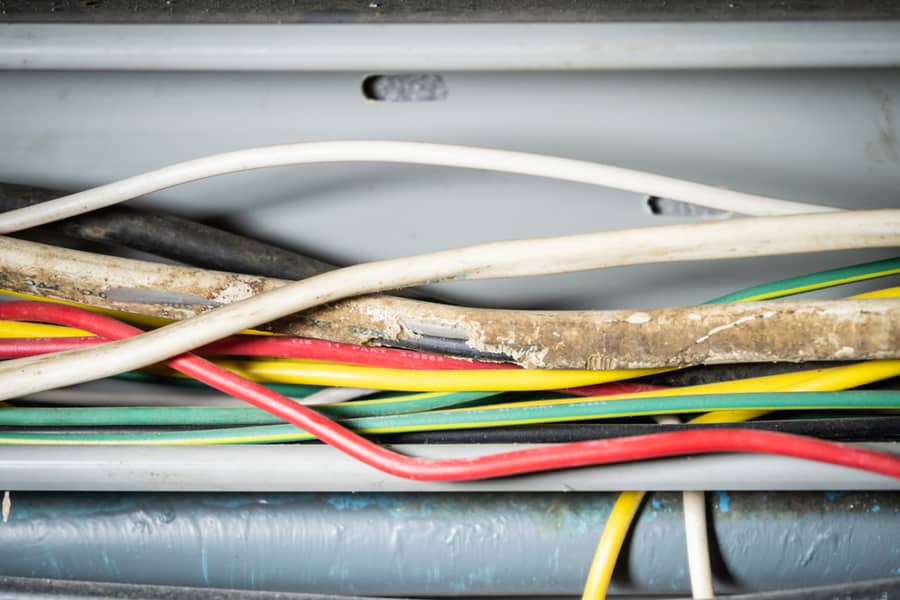
Electrical issues can be one of the most common causes of AC compressor failure.
To function properly, your air conditioning system relies on electrical components such as capacitors, relays, and wiring. When these components fail or malfunction, they can cause the compressor to overheat and fail.
Power surges, which occur when the voltage of the electrical supply to your home increases suddenly, can also damage the electrical components in your AC system.
This can cause the compressor to fail or even result in a complete system breakdown.
It’s essential to regularly inspect your system by a qualified technician to identify any potential electrical issues before they cause damage to your compressor or other components.
Regular maintenance can help keep your system running smoothly and prevent costly repairs in the future.
7. Overheating
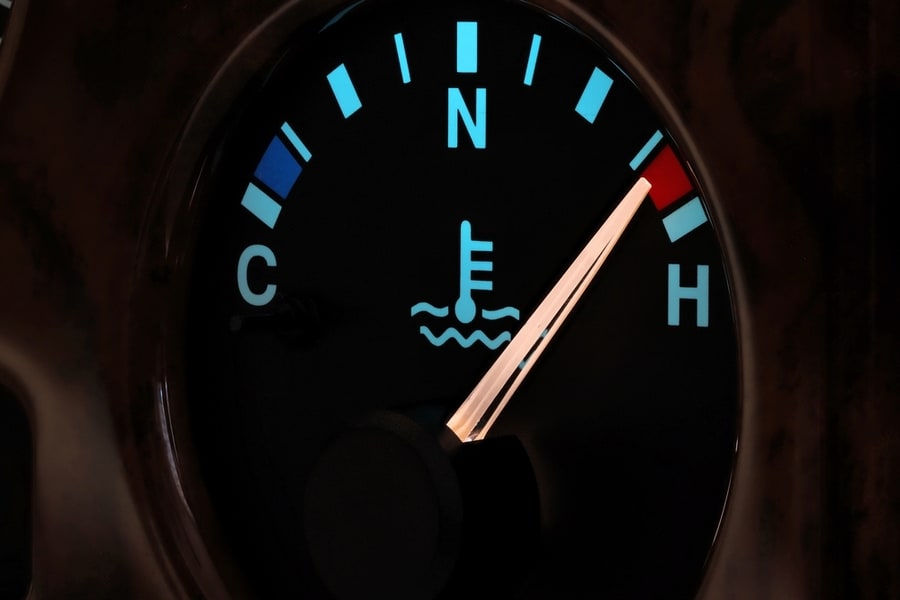
Overheating is another common cause of AC compressor failure. When the compressor overheats, it can cause the internal components to wrap, which can cause it to seize up or fail altogether.
Overheating can be caused by various factors, including dirty coils, clogged air filters, and low refrigerant levels. In addition, an overworked compressor due to an undersized AC system for your home cooling needs can also cause overheating.
Cleaning and maintaining your AC system regularly is important to prevent compressor overheating. This includes changing air filters, cleaning coils, and having a professional perform annual maintenance checks.
Secondly, ensuring your AC system is properly sized for your home cooling needs is important to prevent overheating the compressor.
If you notice any signs of overheating, such as strange noises or warm air blowing from your AC, it’s important to turn off the AC immediately to prevent further damage.
8. Old Age Unit
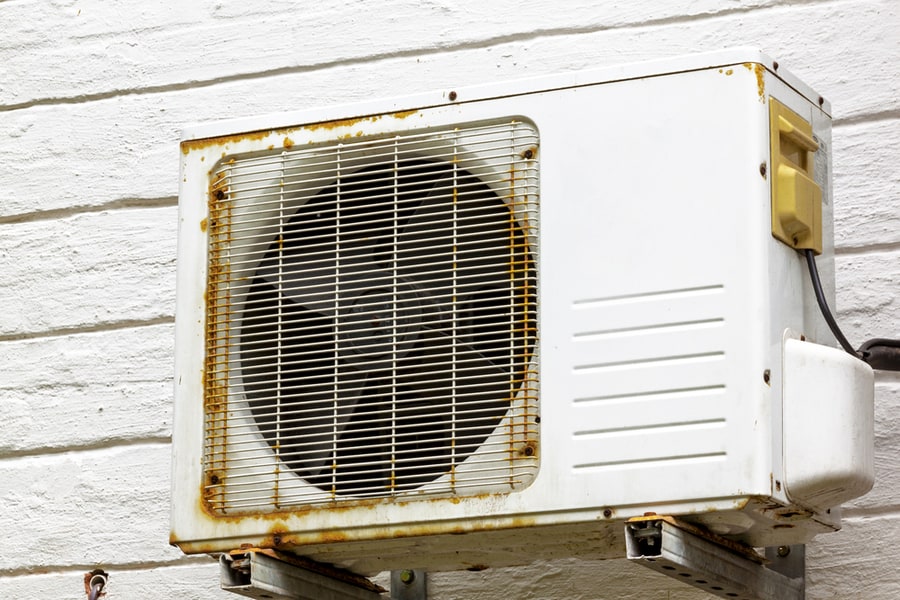
As AC compressor age, they become more prone to failure. Over time, the compressor will experience wear and tear, and its internal components will deteriorate. Eventually, this will lead to the compressor failing.
Most compressors have a lifespan of around 10-15 years. However, this can vary depending on factors such as the compressor’s quality, how often the system is used, and how well it has been maintained over the years.
If your AC system is older, it may be more susceptible to compressor failure.
In some cases, replacing the entire AC system may be more cost-effective than just the compressor, especially if the system is already approaching the end of its lifespan.
9. Poor Installation
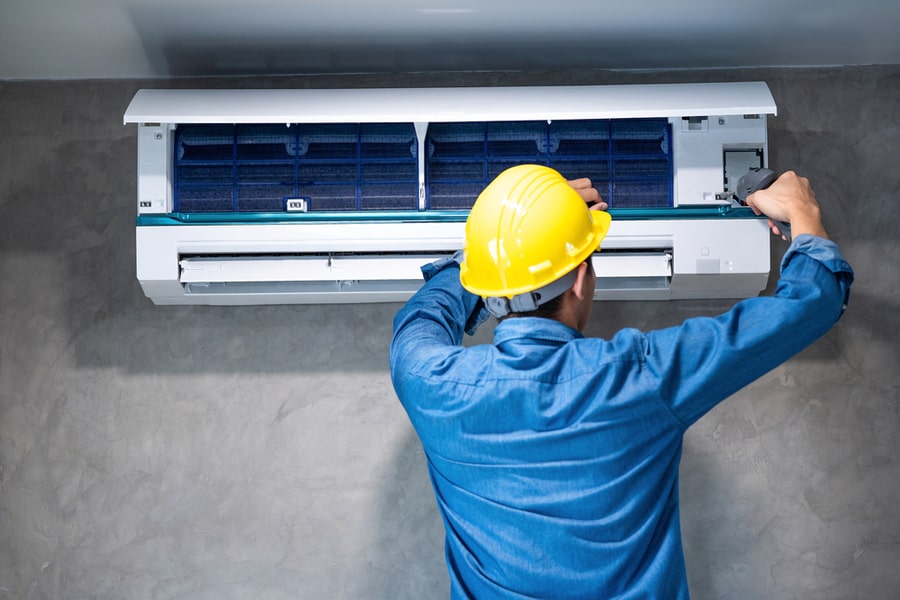
Lastly, when your AC system is not installed correctly, it can put undue stress on the compressor and other components, leading to premature failure.
Poor installation can result in various issues, including improper refrigerant levels, incorrect sizing of components, and inadequate ductwork.
These issues can cause the compressor to work harder than it should and become damaged over time.
To avoid these issues, it is crucial to have your AC system installed by a professional HVAC technician. They can ensure that all components are properly sized and installed, refrigerant levels are correct, and ductwork is sufficient.
Proper installation can also help prevent other issues that can lead to compressor failures, such as improper airflow and electrical issues.
By investing in a professional installation, you can help extend the life of your AC system and avoid costly repairs or replacements down the line.
Conclusion
A compressor is one of the most critical components of your AC system; its failure can lead to a malfunctioning AC unit. The reasons for compressor failure are numerous and often preventable.
Regular maintenance, prompt repair of leaks, proper installation, and appropriate unit sizing can help prevent compressor failure.
If you notice any signs of a failing compressor, a professional must inspect your AC system to prevent further damage and potentially costly repairs.
Remember, taking care of your AC system and promptly addressing issues can help ensure its longevity and efficiency.
Frequently Asked Questions
Is It Possible To Repair a Failing Compressor?
It depends on the extent of the damage; minor issues may be repairable, but they may need to be replaced if the compressor is severely damaged.
How Much Does It Cost To Replace an AC Compressor?
The cost of replacing an AC compressor varies depending on the unit type and other factors.
Typically, it can range anywhere from a few hundred to a few thousand dollars.
How Often Should I Have My AC System Inspected?
It’s recommended to have your AC system inspected at least once a year by a qualified technician to catch any issues early on and prevent compressor failure.


